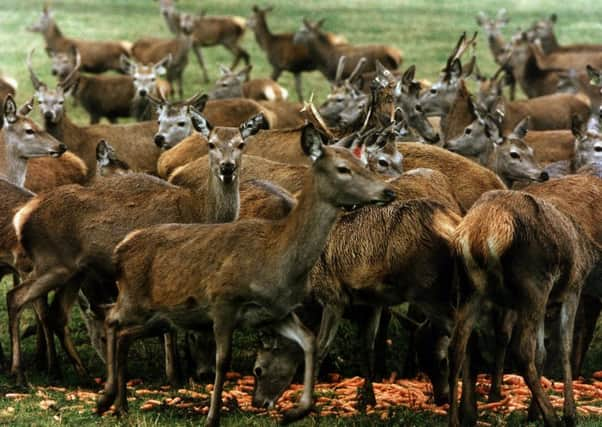Venison demand drives growth for deer farmers


Dick Playfair of the Venison Advisory Service was speaking at an open day on one of the new deer farms in Midlothian when he said demand was currently rising by about 10 per cent a year.
With a shortfall in home production, the gap is being filled by imported venison from Ireland, Poland and New Zealand. However, Playfair pointed out that the latter was now sending more of its production to China.
Advertisement
Hide AdAdvertisement
Hide AdHe also revealed that the demand for venison has moved from being seasonal to a 12-month requirement. With wild deer providing supplies during the shooting season, farmed venison had the market for the remainder of the year.
Two years have passed since Scottish deer farmers announced an ambitious plan to increase production by 1,000 tonnes of venison by 2020. Playfair indicated that while good progress was being made towards that target, it might not be achievable because so many farmers were either starting in the business or expanding and most of the hind calves were being kept for breeding.
In the past 24 months, there had been a number of newcomers to deer farming on what he described as a “sensible and significant scale” with units of around 500 hinds and these would soon make a big contribution to the total output of Scottish venison.
Playfair was also encouraged by the number of new entrants coming into the business following the change in common agricultural policy support which had previously left deer farming at a financial disadvantage.
He believed the more people saw deer being farmed, the more others would be attracted into the business, especially as it had an unfulfilled and hungry market.
The home sourcing of stock was important as there was a real danger of importing disease if hinds were brought in from abroad.